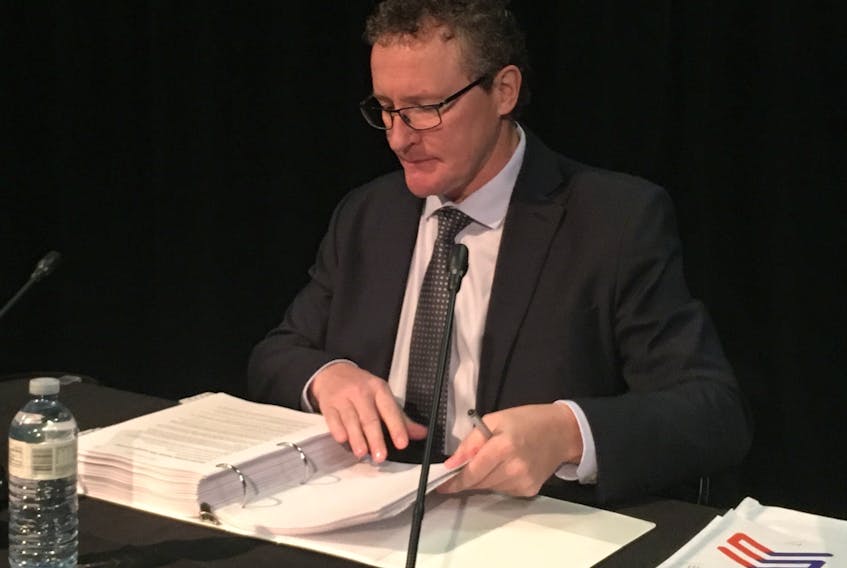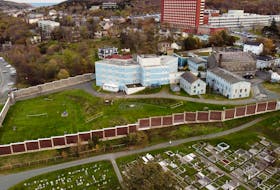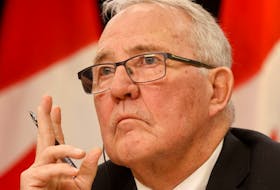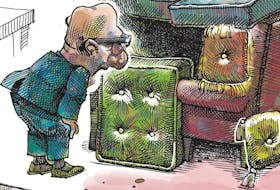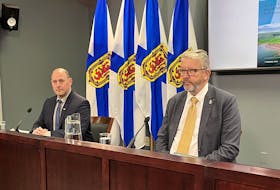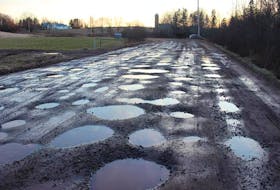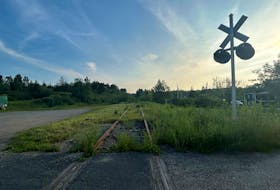“You know, I guess when you sign up to become a politician and you take on the responsibilities of government, at the time I felt I was proud to be a part of a government that was prepared to make tough decisions, to look at ways to advance the province and we were tasked with a big job, a big responsibility. I took that very seriously, put a lot of time and effort into it … We made decisions on the best information that we had. We felt that information was right. So, from that perspective, that’s how I feel, I guess. That’s how I sleep at night.”

That’s former natural resources minister Derrick Dalley at the Muskrat Falls inquiry, just one of a series of former politicians whose testimony has been gobsmackingly underwhelming.
OK — how to put this diplomatically? There has to be a way to get a more consistent, better quality of provincial politicians.
There’s a fundamental deficit in our democracy, in that we have a bad habit of electing perceived saviours who come with whatever ducklings straggle in on his or her coattails, politicians put in place because their constituents need someone on the government side.
The Muskrat Falls inquiry is making that plain. The takeaways so far are pretty simple: Nalcor Energy and its staff had never taken on a project like Muskrat Falls, but were absolutely convinced they were equipped to handle it, on time and on budget, and anyone who asked questions was the enemy.
The logical brake to that was the government, with its responsibility for oversight — the problem being that the politicians responsible for that oversight were even less qualified to oversee a project like Muskrat Falls than Nalcor was.
The testimony from the politicians has been uniformly disappointing. In fact, it has been staggering in its demonstration of how far our elected politicians were in over their heads.
No one saw anything. No one remembers anything. No one asked any questions. No one reviewed Nalcor’s work or even asked for any review. Everyone thought they were doing a good thing for the province, despite being unable to explain how that good thing was even going to work. (So far, the only politicians who seem to have asked any questions at all are former natural resources minister Jerome Kennedy and former premier Tom Marshall. Everyone else? Bupkis, when it comes to critical analysis.)
As we elect, so shall we reap.
And that’s why there has to be a change in how we pick our politicians.
The testimony from the politicians has been uniformly disappointing. In fact, it has been staggering in its demonstration of how far our elected politicians were in over their heads.
We have to stop asking the question “If we elect Fred, will he be on the government side and be able to dispense the candy?” and start asking, “Which of the candidates in the district actually have the tools required to do the heavy lifting that the job entails?”
And remember — successive governments have done their parts to foster the idea that it’s critical to elect whatever candidate is likely to sit on the government benches. Civil servants look at budgets for essential services like fire equipment and road and bridge repairs, and list them in a declining order of importance. But that order doesn’t stick; government members get to campaign for their favourites, even if that means a town that desperately needs support to get fire equipment is left off the list because it’s in an opposition district.
The unabashed tradition of pork-barrelling in this province has bent the electoral system.
There are good, smart people in this province who would not have been afraid to challenge the base assumptions that Nalcor was using — who would not have been afraid to ask, “What if you’re wrong about this?” Who would not have been afraid to ask Nalcor; “What makes you think you’re equipped to pull off a project like this?”
But they weren’t in government.
We need them in every seat of the House of Assembly, government and opposition alike.
If you pick your political leaders for their ability to put extra gravy on your fries, the only thing they’re going to do in any situation is to keep trying to put extra gravy on your fries. When you ask them to oversee a multi-billion-dollar remote hydroelectric project with a near-infinite number of variables — from weather to geology to workforce — and a critical lack of hands-on project experience, you’re unlikely to get the outcome you need.
And at the inevitable public inquiry, the best they’ll come up with is the equivalent of, “We thought, maybe, more gravy was important.”
Recent columns by this author
RUSSELL WANGERSKY: No feasible layaway plan for Muskrat Falls
RUSSELL WANGERSKY: Power line saga tangled up in court
Russell Wangersky’s column appears in 36 SaltWire newspapers and websites in Atlantic Canada. He can be reached at [email protected] — Twitter: @wangersky.

